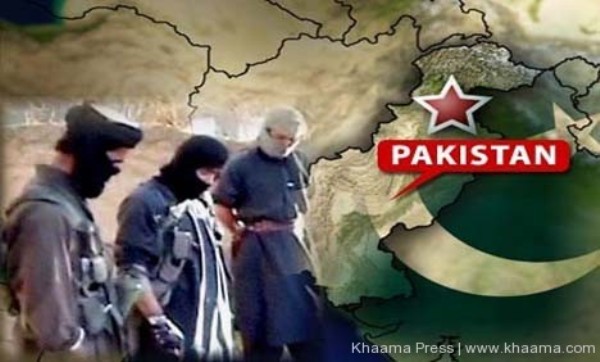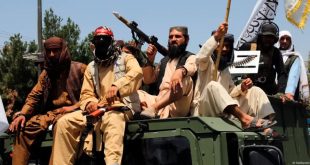By: Petras AUŠTREVIČIUS, Member of the European Parliament
The recent ghastly terror attacks in Kabul and London makes me wonder whether such acts of violence are fast becoming the new normal in our lives. Over the last few years, we, as citizens of this world, have grieved for hundreds of innocent lives lost in Boston, Brussels, Paris, Nice, Ankara and many other cities, and have held numerous international discussions on how to tackle this problem. But after each attack, as the enemy grows stronger, we realize that we remain as vulnerable as ever.
In my opinion, the lack of coordination and resolve among nations to deal with terrorism, an issue that still fails to override narrow political and economic interests, has led us to this situation. However the writing is clear on the wall – unless we coordinate our efforts and act quickly against terror groups worldwide, irrespective of where they operate, such attacks would become as regular an occurrence as road accidents.
I strongly believe that terror groups cannot become a potent force without support, whether from governments or institutions. Key to their sustenance is a regular supply of finance. Thus the first concerted step that ought to be taken is to clamp down on terror funding networks. Various international bodies like the Financial Action Task Force (FATF), the inter-governmental body tasked with countering illicit financial transactions used to promote terrorism, are entrusted with this job. The need of the hour is for FATF member states to augment their monitoring capabilities and impose strict sanctions on countries seen allowing terrorist/extremist groups to flourish on their soil, thereby endangering world security.
A case in point is Pakistan. It is well known that over the last five decades, the country’s military and security agencies have propped up terror groups to serve their strategic interests, whether it is to keep Afghanistan destabilized, foment trouble in Indian administered Kashmir or use them as proxies to neutralize ethnic or minority groups within Pakistan. The years of support received by these radical Sunni groups from the Pakistani establishment, has ensured that UN proscribed terror groups like the Lashkar-e-Taiyabba (LeT) and its affiliates like the Jamaat-ud-Dawa (JUD) and Falah-i-Insaniat Foundation (FIF), have become so well-entrenched within the country, that now they also have significant support within the public.
Large sections of the Pakistani population are radicalized, making it easy for terrorists to be recruited. The Pakistani government’s inaction in the face of radical religious sentiments has brought the country to a stage where a significant number of people oppose the house arrest of UN-proscribed terrorist and JUD leader Hafiz Saeed. The extent of radicalization was also reflected in a recent survey conducted by Gallup Pakistan which revealed that 2 of every 3 Pakistanis believe that the country should be governed by Sharia law.
Hafiz Saeed was placed under house arrest in January 2017, along with other important leaders of the JUD and its front organization, the FIF. The objective behind this move was to assure the FATF, prior to its plenary session in February 2017, that Pakistan had taken measures to implement UNSC Resolution 1267 with regard to UN-designated entities/individuals. After his arrest, his deputy Hafiz Abdur Rehman Makki has continued this tirade without any interference from the Pakistani authorities, threatening to wage jihad against the NATO and the US.
A casual glance at vernacular newspapers in Pakistan during the last one month would clearly show that despite Pakistan’s claims of clamping down on the JUD/FIF by arresting its key leaders, freezing bank accounts and preventing them from collecting funds, there has been little visible impact on the activities of these organizations or their affiliates. All through this month of Ramadan, the FIF has been distributing food packages worth millions of Pakistani rupees. Further, at a recent seminar in Kasur, FIF Chairman Hafiz Abdur Rauf disclosed that his organization was carrying out relief activities amongst Muslims in Burma, Syria, Gaza, Kashmir and Balochistan, while the JUD continued to host numerous seminars and public meetings all over Pakistan. Thus reports from the ground in Pakistan clearly demonstrate that Pakistan’s claim of having taken measures against these groups is only on paper, without any real impact on their activities.
It is time we accept the fact that the current dispensation in Pakistan cannot take any effective action against these extremist groups. Such a step would not only be thwarted by the military and intelligence agencies of that country, it would also face opposition from within the support base of these groups and the country’s radicalized population. Organizations like the JUD are no longer viewed as terror groups in Pakistan, and it is considered quite normal for the country’s Minister for Religious Affairs Muhammad Yusuf to visit (late 2016) the JUD headquarters in Lahore.
It is time the European Union and responsible Western democracies come together and send a strong message to countries like Pakistan, that they have zero tolerance towards support to terror groups and networks. The next plenary session of the FATF (Valencia, June 19-23, 2017) provides a good opportunity for such a message to be conveyed, by bringing Pakistan back onto the list of monitored countries. Any failure to do so would only ensure that people like Hafiz Saeed walk free, and our cities come under more terror attacks.
 Afghanistan Times
Afghanistan Times




